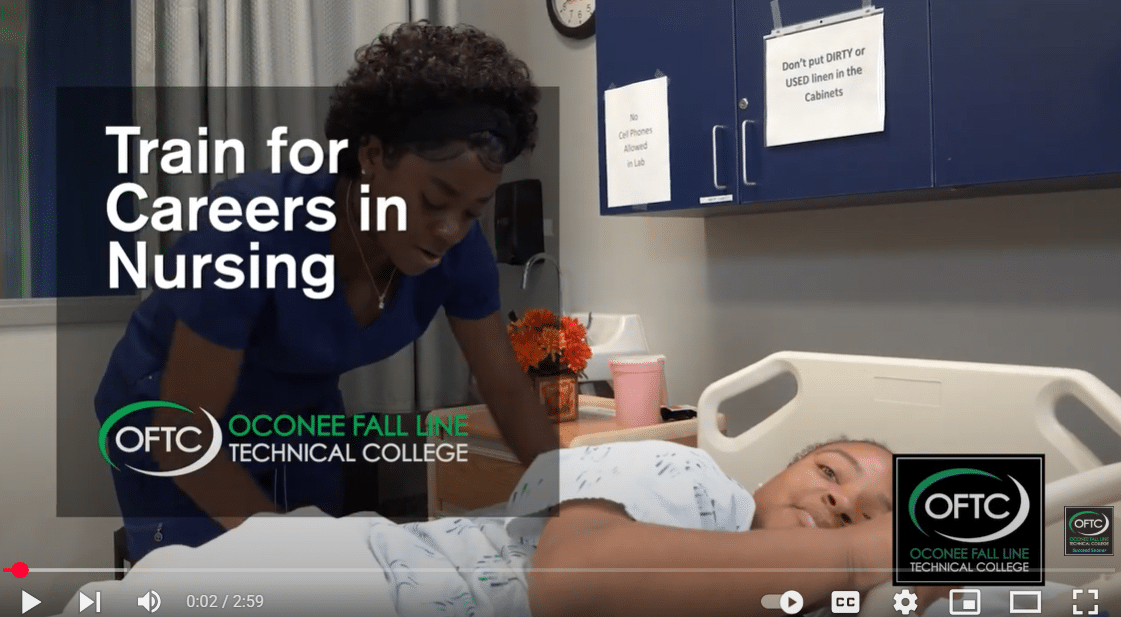Nursing
settingsCaring. Skilled. In Demand.
Nurses are the heart of healthcare—offering compassion, critical thinking, and hands-on care when patients need it most. With the ongoing demand for qualified nurses across the U.S., there’s never been a better time to start or advance your nursing career.
OFTC offers three flexible pathways to help you achieve your nursing goals faster and more affordably.
Overview
Practical Nursing Program
Students in OFTC’s Practical Nursing Program take a variety of academic and occupational courses that train them to:
- Provide basic medical care
- Insert catheters
- Assist patients with daily living activities
- Discuss healthcare treatment plans with patients and families
- Report patient information to nurses and doctors
Program length: 3 semesters
This program allows you to start work up to two years faster than earning a bachelor’s degree, with fewer expenses related to training and strong earnings potential.
Associate Degree in Nursing (ADN) Bridge Program
This program is designed for Licensed Practical Nurses (LPNs) or paramedics who have at least one year of in-field experience. It offers an accelerated path to become a Registered Nurse (RN).
Registered Nurses play a key role in patient care, including:
- Administering medication
- Coordinating patient care plans
- Performing diagnostic tests and interpreting results
- Overseeing other nursing staff
- Helping patients, families, and caregivers establish ongoing care plans
Program length: 6 semesters
The bridge program offers flexibility, enabling you to continue working while you pursue your degree — finishing faster and saving money.
Associate of Science in Nursing (ASN) Degree Program
This program is designed for individuals with no healthcare background who want to start a career as a Registered Nurse. The curriculum is focused on producing highly trained, technically advanced, competent, and caring professionals prepared to work in various healthcare settings.
The program emphasizes that nurses are caring, holistic individuals with:
- Critical thinking and problem-solving skills
- Integrity and accountability
- A strong theoretical knowledge base
- Refined psychomotor skills
- Commitment to lifelong learning
Program length: 7 semesters
Programs
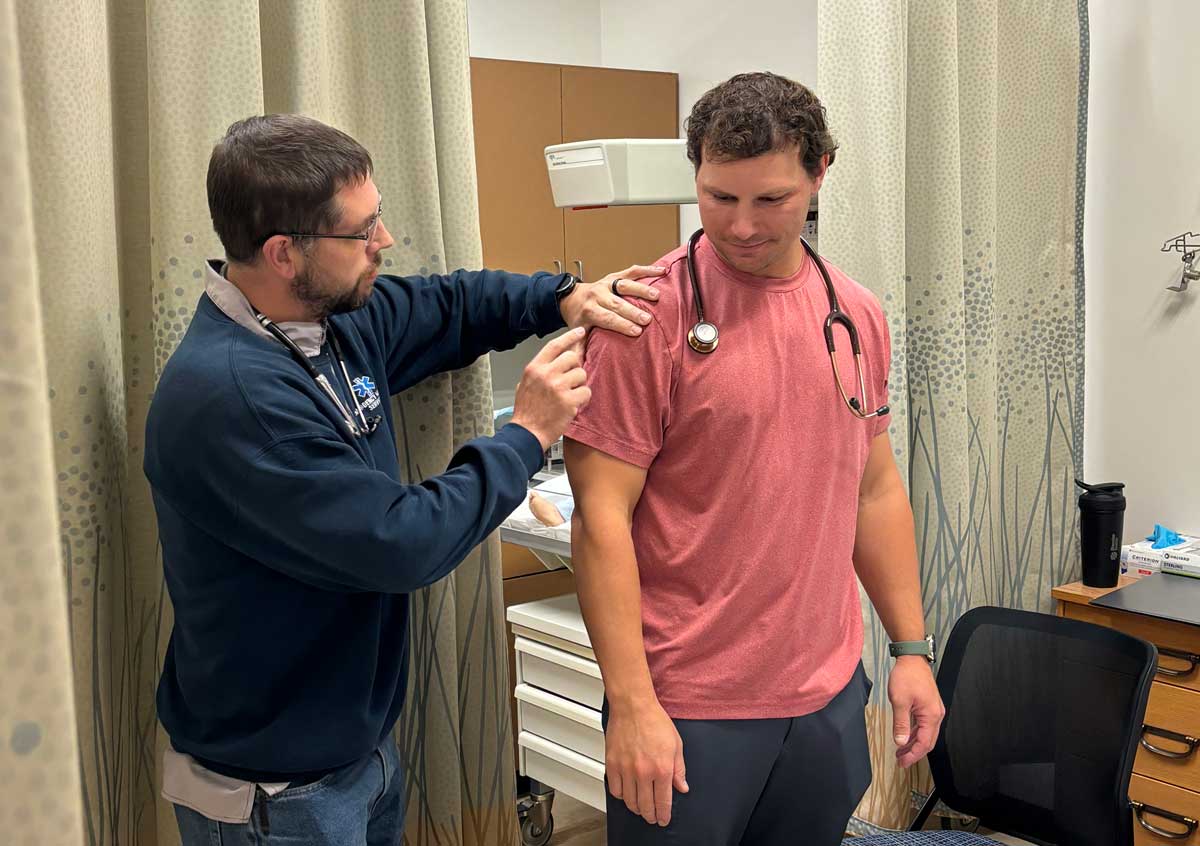
Associate Degree in Nursing Bridge
Nursing
Associate of Applied Science Degree
6 Semesters
The Associate Degree in Nursing Bridge (ADN Bridge) curriculum is designed to produce highly-trained, technically advanced, competent, and caring individuals who are prepared to practice professional nursing in a variety of health care settings. The nurse is viewed as a caring, holistic person who possesses critical thinking/problem-solving skills, integrity, accountability, a theoretical knowledge base, refined psychomotor skills, and a commitment to life-long learning. Graduates are eligible to apply and take the National Council Licensure Examination for Registered Nurses (NCLEX-RN).
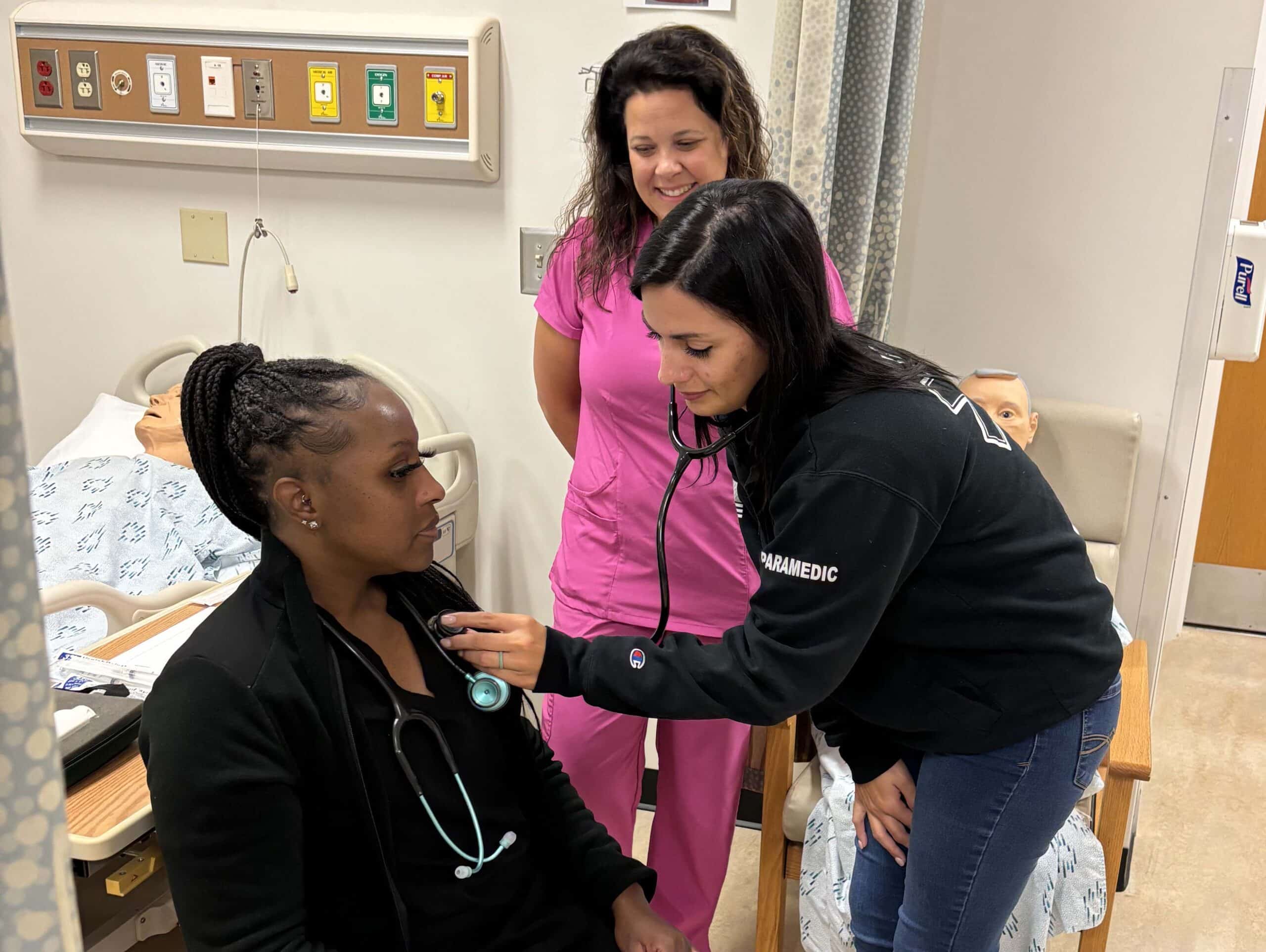
Associate of Applied Science Degree in Allied Health Professions
Nursing
Associate of Applied Science Degree
4 Semesters
The Associate of Applied Science Degree in Allied Health Professions (AHP) offers flexibility in tailoring the curriculum to suit the individual academic and career objectives of each student. This program entails the completion of a range between 61-64 semester credit hours, comprising 15 hours of general education requirements and 49 hours allocated to healthcare-related occupation courses
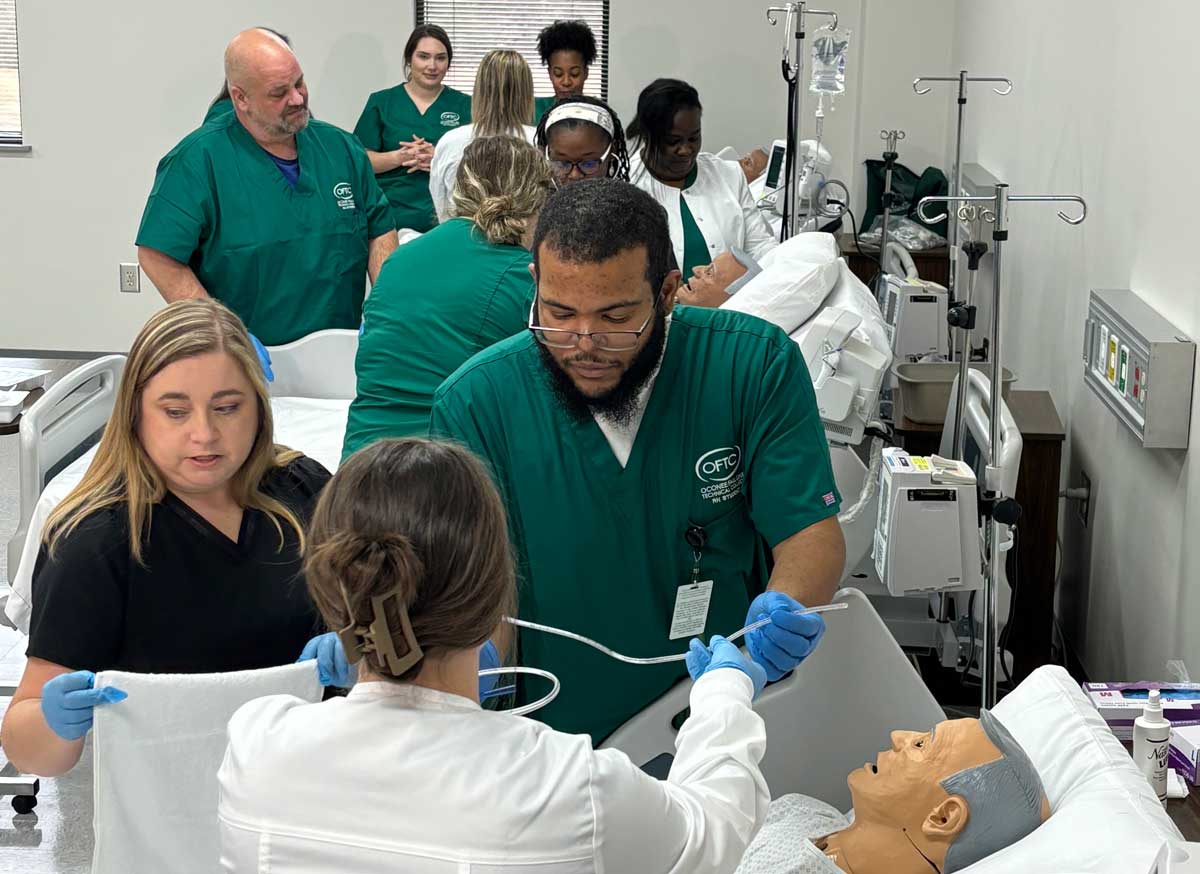
Associate of Science in Nursing
Nursing
Associate of Science Degree
7 Semesters
The Associate of Science in Nursing degree program is designed to prepare students for positions in the nursing profession. The curriculum is designed to produce highly-trained, technically advanced, competent, and caring individuals who are prepared to practice professional nursing in a variety of health care settings. The nurse is viewed as a caring, holistic person who possesses critical thinking/problem-solving skills, integrity, accountability, a theoretical knowledge base, refined psychomotor skills, and a commitment to life-long learning.
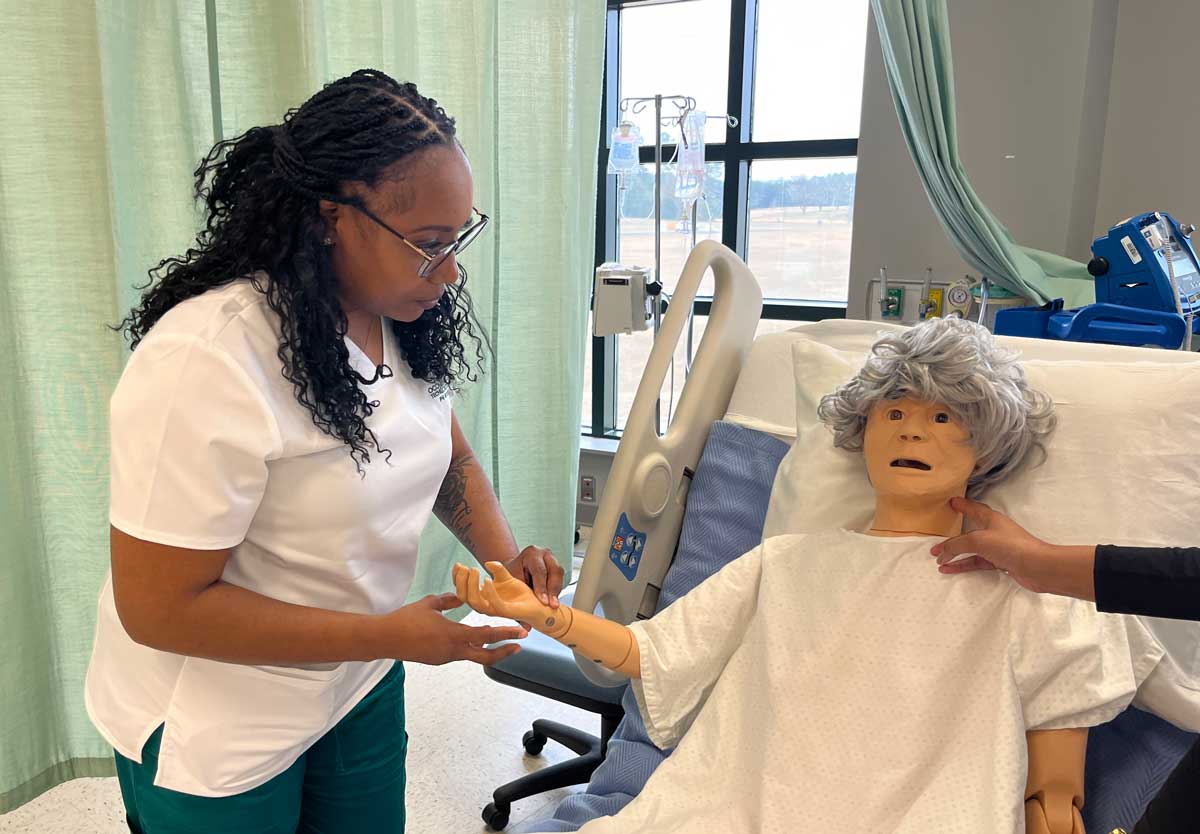
Practical Nursing Technical Certificate of Credit
Nursing
Certificate of Credit
3 Semesters
The Practical Nursing Technical Certificate of Credit is designed to prepare students to write the NCLEX-PN for licensure as practical nurses. The program prepares graduates to give competent nursing care. This is done through a selected number of occupational courses providing a variety of techniques and materials necessary to assist the student in acquiring the needed knowledge and skills to give competent care. The nursing program covers all theoretical content areas outlined in Georgia Board Rule 410-9-06 (5a & 5b). A variety of clinical experiences is planned so that theory and practice are integrated under the guidance of the clinical instructor.
The HOPE Career Grant is available to HOPE Grant-qualified students who enroll in select majors specifically aligned with industries in which there are more jobs available in Georgia than there are skilled workers to fill them. Learn More
Features
Job Stability & Security
The rapid employment growth projected for nurses results from an emphasis on preventive care, rising rates of chronic conditions, and an aging population. Nurses’ education helps define their roles and duties—as well as pay. The more you learn, the more you earn.
Little or No Cost to You
With the Pell Grant, Georgia’s HOPE Grant, HOPE Scholarship, and HOPE Career Grant (for students/programs who qualify) and other scholarship opportunities, many students graduate OFTC with little to no debt.
Tuition & Fees
With tuition at $107 per credit hour, total costs for Nursing department programs range from:
- Tuition & Fees*: $5,673.00 – $8,500.00
- Books & Supplies*: $1,650.00 – $2,000.00
- Uniform & Supplies: $300.00
- Liability Insurance (per year): $11.00
*Visit the OFTC Catalog to view each individual program and its full breakdown of tuition, fees, books, and supplies. Costs are estimated and are subject to change.
Advancement Opportunities
There are many ways to advance a nursing career – learn from a nurse mentor, earn a specialization certification, join a professional nursing organization, further your nursing education by obtaining an advanced degree, transitioning to management, specializing in a medical area, or pursuing administration positions.
Locations
Oconee Fall Line Technical College has campuses throughout its 11-county service area. We look forward to your visit.
Admissions
Our application process takes just a few minutes to complete, but we want to make sure you have the things you’ll need on hand to complete the application. We’re here to help if you have any questions!
Admissions Process
Your admissions application can be submitted online with your $25.00 non-refundable application fee and takes just a few minutes to complete.
- Submit a completed application and application fee.
- Submit official high school transcript, GED transcript, or official college transcripts, if applicable.
- Submit official entrance score on a validated assessment instrument, if applicable. Visit the OFTC Catalog Program Page to view each individual program and its required minimum scores.
- Complete the FAFSA (Free Application for Federal Student Aid) and HOPE applications online using OFTC School Code: 031555.
NOTE: The College may accept transfer credit for other courses according to the College’s transfer policy.
General Requirements
Be at least 16 years of age.
Additional admissions requirements unique to each program are listed on each individual program page in the OFTC Catalog.
Need More Info?
For more information about any of these programs, contact a program advisor:
Sandersville Program Advisor
(P): 478-553-2086
Dublin Program Advisor
(P): 478-274-7840
For additional information on admission to OFTC, contact the Office of Admissions:
Sandersville Office of Admissions
(P): 478-553-2064
Dublin Office of Admissions
(P): 478-275-6589
Learning Format
Students may begin core courses any semester and compete to enter the nursing programs fall or spring semester, depending on the program and campus. See competitive application for details.
Classes are offered in a variety of formats: on campus, blended, online asynchronous, and synchronous technology.
On Campus
These are courses that are taught primarily in the classroom or lab with less than 50% of instruction online. On campus courses may include lecture, labs, internships, clinicals, and other in-person instructional modalities.
Blended
Blended courses are distance learning courses with the majority of the course content, activities, and interactions occurring online but may require students to come to campus for specific assignments, activities, or events.
Online Asynchronous
These are courses that are taught fully online asynchronously with course content, activities, and interactions occurring entirely online. This delivery method does not require students to be online at a specific date or time, and students may participate in class activities and complete course assignments asynchronously. Online asynchronous courses require proctored events.
Synchronous Technology
OFTC also utilizes synchronous technology to offer courses via distance education means. The course is taught on one campus and then broadcast simultaneously to a classroom on a different campus that is monitored by a class proctor.
Flexible Schedule
We want you to get the most out of college and understand the pressure it adds to your life. At OFTC you can achieve your career goals and fit college into your lifestyle. We offer small class sizes and flexible scheduling.
Courses for our programs are offered during the morning, afternoon, and evenings – plus many are online where you can do your work any time of day.
And the personalized hands-on attention you receive in a small classroom setting allows you to get individualized support, focus and feedback from your instructors. Your instructors will get to know you and help you build the foundation and confidence needed for success in your field.
Apply TodayPaying for College
At OFTC, we realize that many students require financial assistance to achieve their academic goals. We’ll work with you to help you obtain financial aid to assist you in funding your education. We’re committed to helping you find ways to pay for this life-changing investment.
With the Pell Grant, Georgia’s HOPE Grant, HOPE Scholarship, and HOPE Career Grant (for students/programs who qualify) and other scholarship opportunities, many students graduate OFTC with little to no debt.
Financial Aid
OFTC offers several financial aid opportunities that can help you pay for college. Most students apply for federal and state aid, including the Pell Grant, HOPE Scholarship & Grant, and HOPE Career Grant.
OFTC students can also apply for scholarships through the OFTC Foundation and various businesses and civic-sponsored organizations.
Contact the Office of Financial Aid or visit OFTC’s Financial Aid web page to learn more about grants, scholarships and Federal Work Study to help fund your education.
Sandersville
(P): 478-553-2131
Dublin
(P): 478-274-7833 or 478-274-7940
Georgia awarded over $934 million in scholarships in AY24
of OFTC students have some form of scholarship in AY24
OFTC students received over $8.4 million in financial assistance in FY25
More than 75% of OFTC students received some sort of Financial Aid in AY24
Contact
Sandersville
(P): 478-553-2131
Dublin
(P): 478-274-7833 or 478-274-7940
Tuition & Fees
With tuition at $107 per credit hour, total costs for Nursing department programs range from:
- Tuition & Fees*: $5,673.00 – $8,500.00
- Books & Supplies*: $1,650.00 – $2,000.00
- Uniform & Supplies: $300.00
- Liability Insurance (per year): $11.00
*Visit the OFTC Catalog to view each individual program and its full breakdown of tuition, fees, books, and supplies. A budgeted cost of attendance is also available. Costs are estimated and are subject to change.
Net Price Calculator
You can also use the Net Price Calculator to get estimated net price information based on what similar students paid in a previous year.
Career Outlook
Nursing includes over 100 professions, and only 60% of nurses work in hospitals. Nurses do more than assist doctors—they are vital patient advocates.
BLS.GOV
Registered Nurses
- 2024 Median Annual Pay: $93,600
Licensed Practical Nurse (LPN)
- 2024 Median Annual Pay: $62,340
What does this mean to you?
Pursuing a nursing career puts you in a high-demand, always-needed profession. Hospitals, clinics, schools, and community health centers all need skilled nurses. You’ll earn competitive pay, have opportunities to advance, and make a meaningful impact on patients’ lives every day.
Learn More
job placement rate for OFTC graduates within the graduation year (AY23)
in-field job placement rate for OFTC graduates within the graduation year (AY23)
of OFTC students enrolled are First Generation college students (AY24)
Program Benefits
Skills Learned
- Assess patients’ conditions
Record patients’ medical histories and symptoms - Observe patients and record the observations
- Administer patients’ medicines and treatments
- Set up plans for patients’ care or contribute information to existing plans
- Consult and collaborate with doctors and other healthcare professionals
- Operate and monitor medical equipment
- Help perform diagnostic tests and analyze the results
- Teach patients and their families how to manage illnesses or injuries
- Explain what to do at home after treatment
Job Titles
- Depending on program of study, Registered Nurse or Licensed Practical Nurse
Diverse Settings
- Hospitals; state, local, and private
- Ambulatory healthcare services
- Nursing and residential care facilities
- Government
- Educational services; state, local, and private
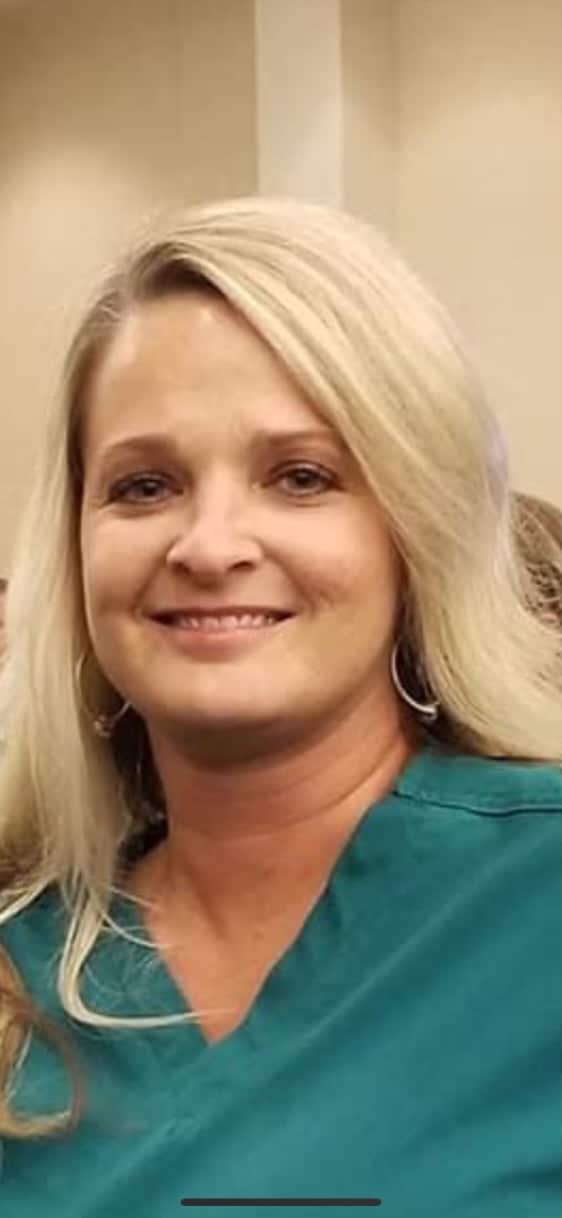
"I am glad I chose the ADN Bridge program at OFTC to become an RN. The instructors were the best! They each bring different healthcare backgrounds to the classroom, and they work with students to create an amazing learning experience."
